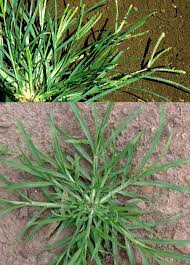In the hidden corners of backyards worldwide lies an often-overlooked plant with remarkable medicinal potential: goose grass (Eleusine indica). Commonly dismissed as a weed, this unassuming plant is a natural powerhouse, offering therapeutic properties capable of addressing over 10 different health conditions.
Goose Grass: A Natural Healer
Thriving in diverse climates, goose grass is a familiar sight in gardens and yards. Its leaves and roots are rich in compounds with anti-inflammatory, antioxidant, antidiabetic, antiallergic, and diuretic properties. For centuries, traditional healers have utilized goose grass, particularly in teas, to treat various ailments.
Health Benefits of Goose Grass
1. Cancer Prevention and Support
Goose grass is packed with antioxidants that neutralize harmful free radicals, reducing the risk of cancer development. Regular consumption of goose grass tea can serve as a preventive measure and complement cancer management strategies.
2. Relief for Ovarian Cysts and Fibroids
The anti-inflammatory properties of goose grass help reduce pain and swelling linked to ovarian cysts and fibroids. A daily cup of goose grass tea supports reproductive health and symptom relief.
3. Kidney Health
As a natural diuretic, goose grass helps flush excess salt and water from the body, alleviating swelling and supporting kidney function. This makes it a valuable addition for managing kidney diseases.
4. Diabetes Management
The plant’s antidiabetic properties aid in blood sugar regulation, making it a beneficial supplement for individuals with diabetes. Regular consumption of goose grass tea can support better glucose control.
5. Wound Healing and Bleeding Control
A paste made from crushed goose grass can be applied directly to wounds to stop bleeding and promote faster healing. Its natural clot-forming properties accelerate recovery.
6. Parasite Removal
Goose grass acts as a natural laxative, helping expel gastrointestinal parasites. By improving digestive health, it offers relief from parasitic infections.
7. Pneumonia Recovery
Brewing tea from goose grass roots can significantly reduce pneumonia symptoms, often yielding noticeable improvements within days.
8. Blood Pressure Regulation
Goose grass tea’s calming effects support cardiovascular health by helping manage high blood pressure, promoting heart health over time.
9. Fever Reduction
Drinking tea made from boiled goose grass roots helps reduce fever and alleviate associated symptoms.
10. Sprain Recovery
A poultice made from crushed leaves can be applied externally to ligament sprains. This reduces swelling and pain, facilitating faster recovery.

How to Use Goose Grass
For Internal Use
- Preparation: Boil a handful of goose grass leaves or roots in 500 ml of water for 3 minutes.
- Dosage: Consume one glass daily to support conditions such as diabetes, kidney disease, high blood pressure, and fever.
For External Use
- Wound Healing: Crush fresh leaves into a paste and apply directly to wounds.
- Sprain Relief: Apply the crushed leaf poultice to sprained areas for pain and swelling reduction.
Embrace Goose Grass for Holistic Wellness
The extraordinary properties of goose grass reveal its potential as a natural remedy for a multitude of health issues. With its wide range of applications, this humble backyard plant is a hidden gem in natural medicine. By incorporating goose grass into your daily wellness routine, you can harness its healing power and enhance your overall health.
Discover the potential of goose grass and transform this everyday plant into a cornerstone of natural healing in your life.
